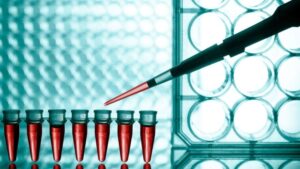The University of Oulu in Finland announced today that researchers have developed a new method for creating functional blood vessels in lab-grown organoids.
Organoids are simplified miniature versions of organs that are created in laboratories to mimic the basic functions and structure of real organs. The addition of blood vessels is vital for organoids to more closely replicate the function of real organs, enhancing their potential in medical research.
To create the blood vessels, researchers at the Finnish university used the chorioallantoic membrane (CAM) of a chicken embryo along with a specialized microdevice. “During their development on the chicken embryo membrane, the blood vessels not only form but also connect with the circulatory system to receive oxygen,” explained Seppo Vainio, Professor of Developmental Biology at the University of Oulu.
He emphasized that with this particular method, vascularized organoids can be transferred to artificial growth platforms while preserving their intact blood vessel network.
The technique, tested on kidney organoids, marks a significant advancement in organoid development technology. With functional blood vessels, organoids behave more like real organs, making them especially valuable for studying diseases and testing new drugs. The University of Oulu believes this innovation will accelerate scientific research on kidney failure, cancer, diabetes, and hypertension.
Ask me anything
Explore related questions





